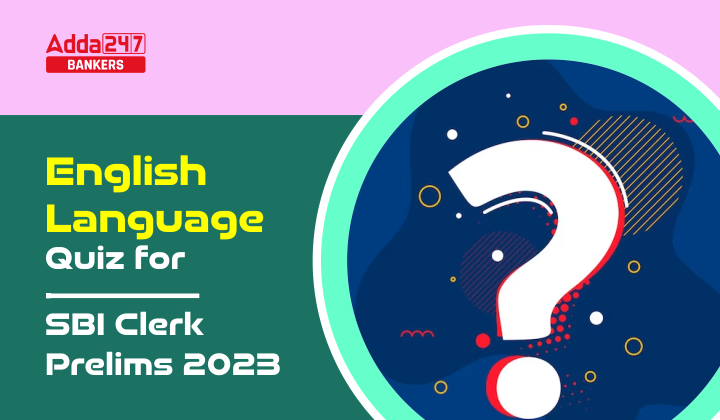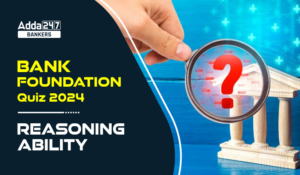Directions (1–5): Rearrange the following sentences (A), (B), (C), (D), (E), (F), and (G) in the proper sequence to form a meaningful paragraph; then answer the questions given below them.
(A) The merchant and his donkey were walking along together. They had not walked far when they reached a river on the way.
(B) There was nothing the merchant could do except return home, where he loaded his donkey with more bags of salt. As they reached the slippery riverbank again, the donkey fell into the river, this time deliberately. Thus, the salt was wasted again.
(C) One beautiful spring morning, a merchant loaded his donkey with bags of salt to go to the market, in order to sell the salt.
(D) The merchant laughed at the donkey and said, “You foolish donkey, your trick has been discovered. You should know that you cannot fool anyone too many times.”
(E) By now the merchant knew the donkey’s trick. He wanted to teach the animal a lesson. As he returned home the second time with the donkey, the merchant loaded bags of sponges on its back.
(F) The duo set out on their trip to the market a third time. On reaching the river, the donkey very cleverly fell into the water again. But now, instead of the load becoming lighter, it became heavier.
(G) Unfortunately, the donkey slipped and fell into the river. As it scrambled up the bank of the river, it noticed that the bags of salt loaded on his back had become lighter.
Q1. Which of the following should be the FIRST sentence after rearrangement?
(a) A
(b) D
(c) B
(d) C
(e) G
Q2. Which of the following should be the THIRD sentence after rearrangement?
(a) B
(b) A
(c) G
(d) F
(e) E
Q3. Which of the following should be the SECOND sentence after rearrangement?
(a)A
(b) F
(c) D
(d) G
(e) E
Q4. Which of the following should be the FIFTH sentence after rearrangement?
(a) E
(b) B
(c) F
(d) C
(e) G
Q5. Which of the following should be the SEVENTH (LAST) sentence after rearrangement?
(a) G
(b) F
(c) E
(d) D
(e) B
Directions (6 – 10) : Read each sentence to find out whether there is any grammatical error or idiomatic error in it. The error, if any, will be in one part of the sentence. The number of that part is the answer. If the sentence is error-free then choose “No error”. (Ignore errors of punctuation, if any.)
Q6. He got to the top (A)/ and was very disappointed (B)/ when he found that (C)/ someone else has reached it first. (D)
(a) A
(b) B
(c) C
(d) D
(e) No error
Q7. The paper displays (A)/ the author’s grasp of the subject (B)/ which stems not only from his experience (C)/ but also from his original thinking. (D)
(a) A
(b) B
(c) C
(d) D
(e) No error
Q8. Solar energy, derived from (A)/ the sun’s radiant light and heat, have (B)/ emerged as a revolutionary source of power (C)/ in the face of growing environmental concerns. (D)
(a) A
(b) B
(c) C
(d) D
(e) No error
Q9. Carrying such a large (A)/ amount of money (B)/ with yours (C)/ is dangerous in Mumbai. (D).
(a) A
(b) B
(c) C
(d) D
(e) No error
Q10. India’s independence (A)/ had been a result (B)/ of the sacrifices of (C)/ many patriots. (D).
(a) A
(b) B
(c) C
(d) D
(e) No error
Solutions:
S1. Ans. (d)
Sol. The correct sequence is CAGBEFD
S2. Ans. (c)
Sol. The correct sequence is CAGBEFD
S3. Ans. (a)
Sol. The correct sequence is CAGBEFD
S4. Ans. (a)
Sol. The correct sequence is CAGBEFD
S5. Ans. (d)
Sol. The correct sequence is CAGBEFD
S6. Ans. (d)
Sol. Use ‘had’ in place of ‘has’ as the reporting speech ‘he found’ is in the past.
S7. Ans. (e)
Sol. No error
S8. Ans. (b)
Sol. Use ‘has’ instead of ‘have’.
S9. Ans. (c)
Sol. Use of ‘you’ instead of ‘yours’.
S10. Ans. (b)
Sol. Use ‘has been’ instead of ‘had been’.





 General Awareness Quiz for Bank Mains Ex...
General Awareness Quiz for Bank Mains Ex...
 English Language Quiz For Bank Foundatio...
English Language Quiz For Bank Foundatio...
 Reasoning Quiz For Bank Foundation 2024 ...
Reasoning Quiz For Bank Foundation 2024 ...





